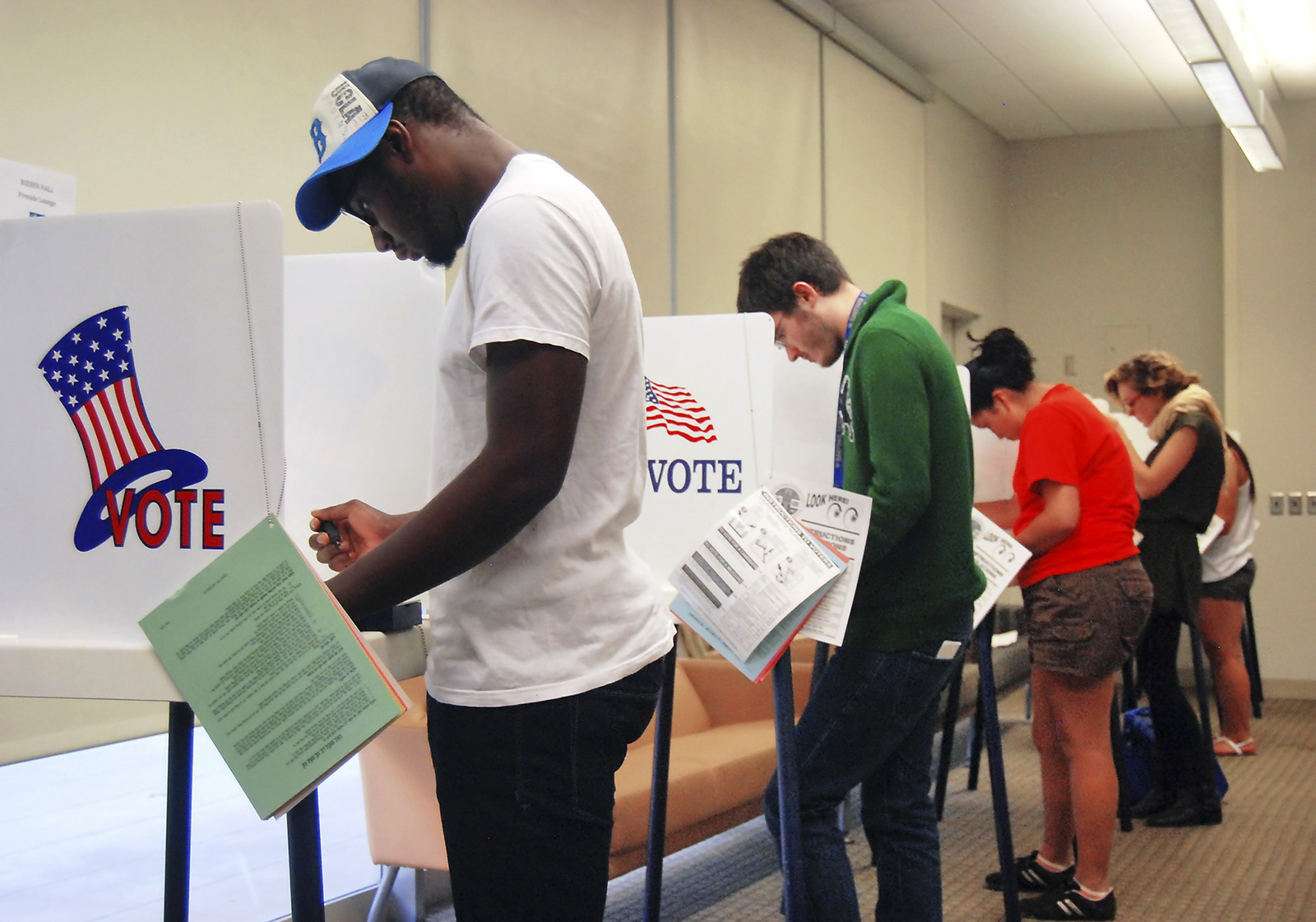Opinion: California must consider making Election Day a state holiday to increase turnout

California should make Election Day a state holiday to increase accessibility to voting. As one of the largest states to do so, it could place pressure on the federal government to follow suit. (Daily Bruin file photo)
By Allison Oliva
Oct. 7, 2020 7:44 p.m.
This post was updated Oct. 11 at 7:31 p.m.
Voting has never been easy – and this year’s election appears to come with more challenges than ever.
Americans have shed light on the inability to vote, including issues of limited polling places, long lines, mail boxes’ being removed, strict voting laws and no early voting, among other hurdles. Perhaps unsurprisingly, most of these injustices are usually found in minority neighborhoods. It’s not a shock that the United States is ranked 26th out of 32 for voter turnout among Organization for Economic Cooperation and Development countries.
Election season is always a controversial time in the U.S. But the current political climate has made this election the most consequential in recent memory. There are a number of key issues voters must consider such as climate change, racial unrest and the effects of the COVID-19 pandemic. With the stakes so high, no one should be excluded from casting a ballot in November.
But as it stands, many are. Assemblymember Evan Low introduced Assembly Bill 177, but it was not approved. The legislation would have allowed the first Tuesday in November of each statewide or national election year to be a state holiday.
Voting is complicated enough as it is – even without a pandemic that has already killed more than 210,000 Americans. And for many students with full academic course loads or workers with families to feed, choosing to vote at the polls can be a major sacrifice. A simple solution to this dilemma is for the government to reintroduce AB 177 and pass it this time in order to ensure equal access to voting.
Aidan Arasasingham, a fourth-year global studies student and the Undergraduate Students Association Council’s external vice president, said that not making Election Day a holiday is yet another hurdle voters have to jump over to be civically active.
“It’s hard to, on one day of the year, take time out of an already busy schedule and cast a vote to be civically engaged,” Arasasingham said.
The president has added another barrier to voting with his recent statements about the postal system’s lack of security for mail-in ballots. As the number of COVID-19 cases rises every day, the idea of voting in person becomes a health risk for people. Americans are left feeling like their only options are putting their health at risk by voting in person or going out of their way to mail in their ballots.
Voting can be especially difficult for young adults who are first-time voters. In 2016, voters 65 years and older reported a 70.9% voter turnout. This stands in stark contrast to the 46.1% of 18- to 29-year-olds who did the same.
But having enough time in the day to vote isn’t the only challenge young voters face.
“The No. 1 reason young people don’t vote is difficulty navigating the voting process,” said Nic Riani, a fourth-year public affairs student and state board chair of California Public Interest Research Group Students. “A bigger motivator could be waking up and knowing the entire day is dedicated to them voting.”
Increasing voting accessibility by making Election Day a holiday is not a novel idea. Sen. Bernie Sanders introduced the Democracy Day Act of 2018 that would make the day a national holiday. Not to mention, 14 states already consider Election Day a holiday.
Sonni Waknin, a voting rights managing law fellow at UCLA Voting Rights Project, said that the federal government makes voting extraordinarily difficult. Making Election Day a holiday would help reduce suppressive tactics that people face, Waknin added.
“It’s an encouragement to engage in the civic process,” Waknin said. “Having a day off would not only expand the ability to vote but also the ability to participate in democracy.”
Of course, there are drawbacks to making Election Day a holiday. Federal law doesn’t require private employers to provide employees paid federal holidays. Minorities who already don’t have enough of a voice in elections are most likely to be working hourly jobs where receiving pay on federal holidays isn’t mandated.
While there are risks, a voting holiday would give these minorities the power to change discriminatory policies like nonfederally mandated pay on federal holidays. Politicians can and should make voting even more accessible with automatic voter registration, same-day registration, changing election day to a weekend and expanded early voting.
Unless the government starts creating solutions for the complications people face when voting, the likelihood of increasing voter turnout and keeping those results is slim.

